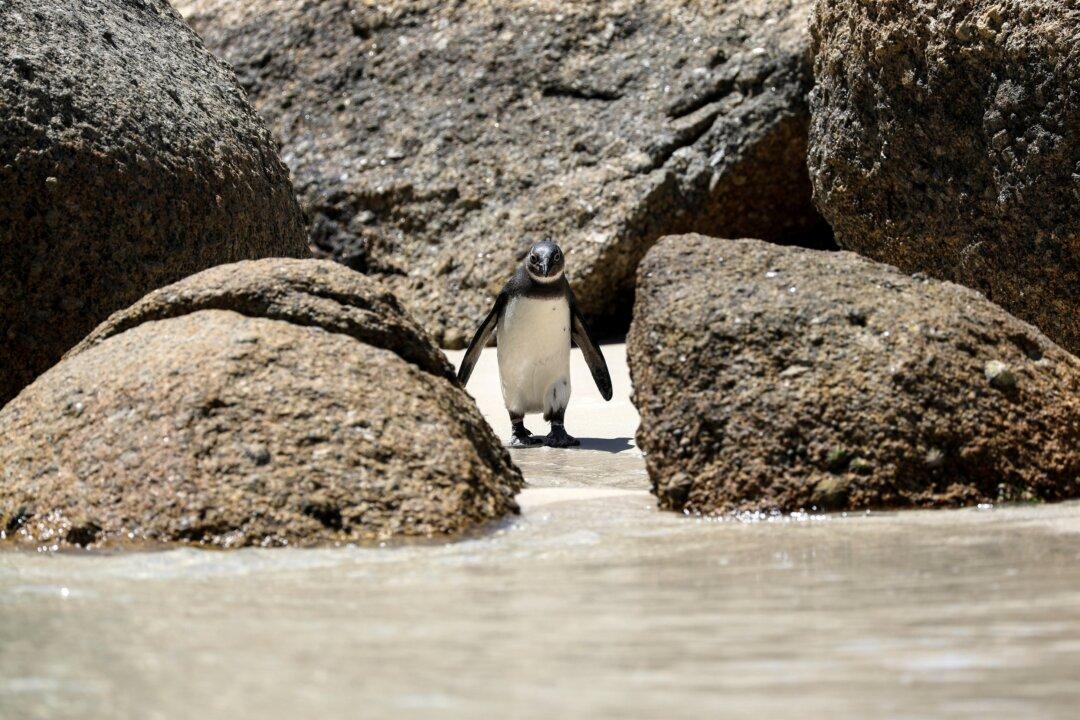CAPE TOWN—South African environmental authorities have confirmed four new infections and another seven suspected cases in a new outbreak of avian flu at Cape Town’s Boulders penguin colony, a popular tourist attraction and an important breeding site, officials said on Friday.
City and provincial officials said the strain of highly pathogenic avian influenza was similar to that detected among a range of wild seabirds, including Cape cormorants and common terns, since May last year after a similar outbreak in 2018 killed hundreds of endangered penguins and other birds.





